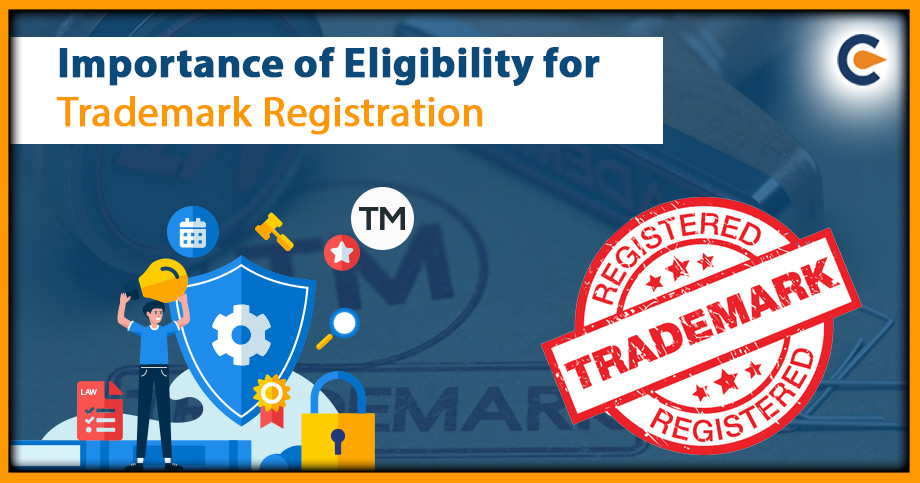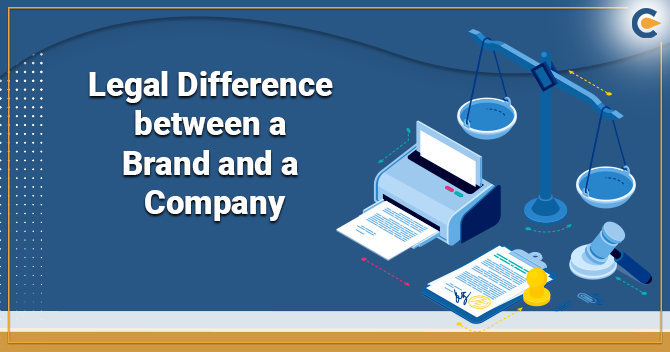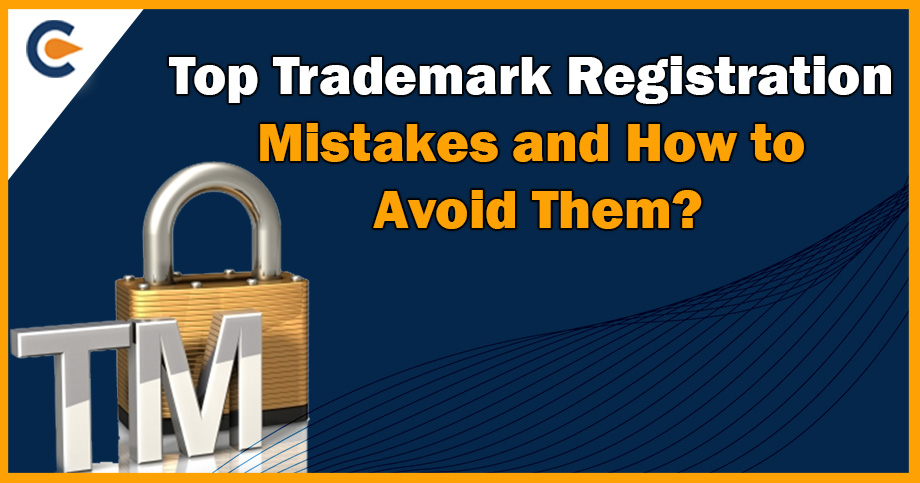Establishing a brand identity is essential when starting a business to set you apart from the other businesses in the marketplace. A symbol, logo, word or phrase is considered a trademark. The trademark reflects the image of the company and makes it distinct from the competitors in the market. A legal protection and exclusive commercial use rights to use the trademark are the two main advantages of trademark registration. Yet not every trademark qualifies for registration. It is essential to confirm the eligibility for Trademark Registration based on the specific requirements, to ensure that the trademark registration is successful. In this blog, we will discuss eligibility for Trademark Registration.
Types of Trademarks
- Word Mark – A trademark composed of words, letters or numbers used to distinguish goods or services. Coca-Cola, Nike and Apple are a few examples of word marks.
- Service Mark – A service mark is a specific mark used to set one company’s services apart from another.
- Device Mark – A mark that consists of an original design or image that symbolizes the products or services of a business is called a device mark. The design is the main component of the mark. For example, the Nike Swoosh.
- Sound Mark – A trademark of a distinctive sound or jingle is called a sound mark. The MGM’s roar of the lion or the bong sound of Intel is examples of sound marks.
- Colour Mark – A colour mark is a specific colour or colour combination used as a trademark. The purple colour for Cadbury and the blue colour of Tiffany & Co. are a few examples of colour marks.
- Shape Mark – A trademark comprising a distinctive three-dimensional shape is known as a shape mark. The triangular shape of the Toblerone chocolate is an example of a shape mark.
- Certification Mark – A certification mark is a form of trademark that is used to show that goods and services satisfy specific standards or qualifications. Governments generally own these marks.
- Collective Mark – Members of a group or organization use a collective mark. A collective mark is used to identify goods or services used by this specific group or organization. Only the people who satisfy particular criteria are permitted to use it.
Classification of Trademark
Before we discuss the eligibility for Trademark Registration, let’s discuss the classification of Trademark. For the purpose of trademark registration, goods and services are categorized using different trademark classes, also referred to as a Nice Classification. There are a total of forty-five classes in the categorization system. The classes are separated into two types. Classes from 1-34 are for goods, and classes from 35-45 are for services.
The classification system is used to ensure that the trademarks are registered for the correct goods or services and to prevent confusion between different goods or services that may have similar names. Each class is recognized by a distinct number and represents a particular category of goods or services.
Eligibility for Trademark Registration
Following is the eligibility for Trademark Registration:
- An Individual – An individual can file for a trademark application even if they are not a business. They can register a word or a symbol that they intend to use in the future as a trademark.
- Joint Owners – When two people decide to file a trademark application jointly, both of their names must be listed on the trademark application.
- Partnership Firm – A partnership firm is eligible to register a trademark. All the partners’ names must be listed in the application.
- Proprietorship Firm – If a sole proprietorship[1] files a trademark application, the application must include the proprietor’s complete name.
- Limited Liability Partnership (LLP) – If a limited partnership applies for a trademark, the application for registration must be submitted under the name of the LLP. An LLP has its own identity because it is an incorporated body.
- Trust or Society – The names of the managing trustee, chairman, or secretary who represents the trust or society must be on the trademark application when a trademark is applied for a trust or society.
- Foreign Company – A foreign company must submit its registration application under the name registered in the foreign nation. The applicant’s address for service in India should be specified in the application if the foreign company does not have its primary place of business there.
- Indian Company – Whether a private limited company, one person company business or limited company applies to register a trademark, the application must be filed under the company’s name.
Qualifying Criteria for Trademark Registration
A trademark must fulfil a set of requirements in order to be qualified for registration with the appropriate trademark office. These criteria are set up to make sure that the trademark is capable of distinguishing one company’s product or services apart from those of another and that it does not conflict with already existing trademarks.
- Distinctiveness
A trademark must be unique in order to qualify for registration. This implies that the mark must be distinctive and uncommon in the pertinent market. Consumers should be able to distinguish the goods or services in the market.
- Non- Descriptiveness
A trademark must not describe and explain the goods or services it stands for. For example, a descriptive mark for a pillow company cannot be “Soft and Fluffy” as it describes the type of pillows. As per the rule, this mark is not suitable for registration as it lacks distinctiveness.
- Non-Deceptiveness
A trademark must not in any manner be false or misleading. This means that the mark must not give the wrong idea about the characteristics or qualities of the goods or services that it stands for. A mark, for instance, implies that goods are manufactured in a particular country when it is not; this would be misleading and ineligible for registration.
- Not Against Public Order or Morality
A trademark cannot contravene morality or public order. This implies that the mark must not offend the general public or violate the accepted norms of society. The registration of trademarks that use offensive or vulgar language or that advocate unlawful behaviour is prohibited.
- Generic Terms
The words and phrases that are more commonly used, such as computers or bread etc., are prohibited from registering as a trademark because they are descriptive in nature.
- Descriptive Phrases
The marks that describe the attributes, features and characteristics of goods or services cannot be registered. For instance, “low calorie” cannot be used for diet foods and drink. Although descriptive terms can be useful to customers, they do not serve as a distinctive source identifier and are not thus eligible for trademark registration.
- Misleading Statements
There are words or phrases that have the potential to mislead or deceive consumers. Such marks cannot be registered because they are likely to cause confusion or deception among consumers.
- Offensive Words or Images
There are words and phrases that some people find scandalous, immoral, or offensive. For example, racial slurs and obscene language. Such trademarks are not allowed to be registered because they violate morals or public order.
Meeting the eligibility for Trademark Registration is essential. When a trademark application does not meet one of the requirements, the application has the risk of being denied or challenged by competitors in the business. In order to build the brand identity and protect the market position, the business should carefully analyze and choose a distinctive trademark that meets the qualifying conditions.
Conclusion
Trademark registration is a very crucial component of brand protection for the companies. For a valid trademark registration, the applicant has to make sure the mark satisfies the eligible conditions, such as being distinctive, non-descriptive, and non-deceptive, in order to acquire trademark registration. Before adopting and utilizing a mark, businesses should perform a trademark search to prevent infringement and other legal issues.











